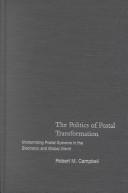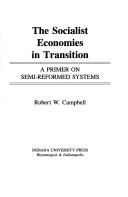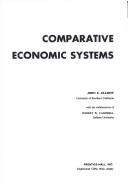| Listing 1 - 8 of 8 |
Sort by
|
Book
Year: 1907 Publisher: London Stevens
Abstract | Keywords | Export | Availability | Bookmark
 Loading...
Loading...Choose an application
- Reference Manager
- EndNote
- RefWorks (Direct export to RefWorks)

ISBN: 0773522840 0773523685 9786612859724 1282859722 077356974X 9780773569744 9780773522848 9780773523685 9781282859722 6612859725 Year: 2002 Publisher: Montreal McGill-Queen's University Press
Abstract | Keywords | Export | Availability | Bookmark
 Loading...
Loading...Choose an application
- Reference Manager
- EndNote
- RefWorks (Direct export to RefWorks)
The postal sector is a multi-billion dollar set of activities that touches billions of lives daily and continues to be one of the world's largest employers. Until recently all Posts were monopolies owned by governments in order to maintain a universal postal service. However, in response to technological and international competition as well as public disenchantment with postal subsidies and inefficiencies, governments have embraced a range of new strategies. In The Politics of Postal Transformation Robert Campbell investigates and analyses the most important policy innovations in recent years as countries struggle to create a postal regime that matches domestic political expectations with international and technological realities. Through extensive interviews with numerous key government, regulatory, postal, and union officials in North America, Europe, and Australasia, he identifies four models or strategies, each reflecting particular national characteristics and ambitions: from privatization (Netherlands, Germany) and deregulation (Finland, Sweden, New Zealand) to increased national support (France) and mixed strategies (UK, Australia). Campbell's comparative analysis provides a backdrop for a set of recommendations for policy-makers and lays the foundation for informed speculation about future international postal developments and the possible domination of the system by a select group of postal behemoths.
AA / International- internationaal --- 384.1 --- Posterijen. --- UNSPECIFIED --- Postal service --- Transportation Economics --- Business & Economics --- Government policy --- Postes --- Government policy. --- Politique gouvernementale. --- Mail --- Mail service --- Post-office --- Carriers --- Communication and traffic --- Transportation --- Posterijen

ISBN: 1282033840 9786612033841 1442679980 9781442679986 9780802083777 0802048544 0802083773 9780802048547 Year: 2001 Publisher: Toronto
Abstract | Keywords | Export | Availability | Bookmark
 Loading...
Loading...Choose an application
- Reference Manager
- EndNote
- RefWorks (Direct export to RefWorks)
Campbell argues that the regulation of the environment of the classic beer parlour, rather than being an example of social control, is best understood as moral regulation and part of a process of normalization.
Drinking of alcoholic beverages --- Bars (Drinking establishments) --- Drinking customs --- Liquor laws --- History --- Alcoholic beverage control --- Drinking laws --- High license --- Law, Liquor --- Liquor industry --- Liquors --- Temperance --- Alcohol --- Beverages --- Manners and customs --- Ale-houses --- Cafés --- Dive bars (Drinking establishments) --- Dives (Drinking establishments) --- Dramshops --- Drinking establishments --- Hotels, taverns, etc. --- Public houses --- Pubs --- Saloons --- Shebeens --- Taverns (Drinking establishments) --- Hospitality industry --- Happy hours --- Alcohol consumption --- Alcohol drinking --- Alcohol use --- Alcoholic beverage consumption --- Consumption of alcoholic beverages --- Drinking problem --- Liquor problem --- Social drinking --- Alcoholic beverages --- Alcoholism --- Law and legislation --- E-books --- Vancouver --- British Columbia --- Granville --- Vancouver B.C.

ISBN: 0253313015 Year: 1991 Publisher: Bloomington Indiana University Press
Abstract | Keywords | Export | Availability | Bookmark
 Loading...
Loading...Choose an application
- Reference Manager
- EndNote
- RefWorks (Direct export to RefWorks)
Book
Year: 1974 Publisher: London Macmillan
Abstract | Keywords | Export | Availability | Bookmark
 Loading...
Loading...Choose an application
- Reference Manager
- EndNote
- RefWorks (Direct export to RefWorks)
Book
Year: 1963 Publisher: Cambridge (Mass.): Harvard university
Abstract | Keywords | Export | Availability | Bookmark
 Loading...
Loading...Choose an application
- Reference Manager
- EndNote
- RefWorks (Direct export to RefWorks)

ISBN: 0131533797 9780131533790 Year: 1973 Publisher: Englewood Cliffs (N.J.): Prentice Hall,
Abstract | Keywords | Export | Availability | Bookmark
 Loading...
Loading...Choose an application
- Reference Manager
- EndNote
- RefWorks (Direct export to RefWorks)
Comparative economics --- AA / International- internationaal --- 330.50 --- 330.34 --- Comparative economic systems --- Economics, Comparative --- Economic policy --- Economics --- Economische en sociale stelsels: algemeenheden. --- Economische ontwikkeling. Regionale economische ontwikkeling --- 330.34 Economische ontwikkeling. Regionale economische ontwikkeling --- Economische en sociale stelsels: algemeenheden
Book
Year: 1987 Publisher: Norman CPS
Abstract | Keywords | Export | Availability | Bookmark
 Loading...
Loading...Choose an application
- Reference Manager
- EndNote
- RefWorks (Direct export to RefWorks)
| Listing 1 - 8 of 8 |
Sort by
|

 Search
Search Feedback
Feedback About UniCat
About UniCat  Help
Help News
News